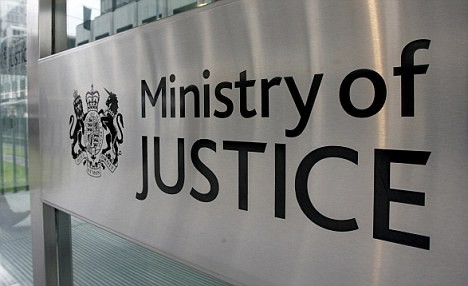By David Young-
Offenders freed from jail in England, who are at risk of committing crimes after drinking, may be required to wear “sobriety tags” or handed alcohol ban under new laws.
Justice Secretary Dominic Raab said the scheme, which is being launched after it was rolled out in Wales last year, will target at least 1,900 prison leavers over the next two years.
Under the programme, electronically monitored tags will be used to check alcohol levels in sweat for former prisoners who are deemed capable of reoffending after drinking. Other jail leavers could be handed an alcohol ban to prevent them from drinking if probation officers conclude they may have a deinking problem, according to the Ministry of Justice (MoJ).
Criminals caught breaching their alcohol restrictions could face being sent back to jail, the department said. An extra £183 million will be injected into electronic monitoring by 2025 to almost double the number of offenders tagged at any one time to approximately 25,000, the MoJ said.
The stringent new plans comes after Whitehall’s spending watchdog warned the Government had failed to improve its tagging system as intended and lost £98 million trying to do so. In a report earlier this month, the National Audit Office said attempts to overhaul the scheme had fallen flat because the Prison and Probation Service (HMPPS) had failed to deliver a new case management system.
Alcohol is believed to play a part in 39 percent of violent crime in the UK and roughly 20 percent of offenders supervised by the Probation Service are identified as having drinking issues. The tags also give offenders the incentive to break bad habits as breaching the alcohol restrictions could see them back in prison.
The MoJ said stopping work on a “back-office system” had meant the Government could invest “savings” into its aim to double tagging numbers by 2025. But shadow justice minister Ellie Reeves described the findings as “yet more evidence… this soft-on-crime Conservative government is letting criminals off and letting victims down through its incompetence”.
The report noted that HMPPS had extended tagging to new groups of offenders, including through the alcohol monitoring service, but warned significant work was still needed to strengthen the system at large. According to the MoJ, the rollout of the scheme in Wales saw offenders on tag sticking to their alcohol restrictions 97% of time.
Sobriety tags were already available to judges to hand down to offenders serving community sentences. From Wednesday, the tags will be used on prison leavers coming out of jail on probation who are identified as requiring them.
The news comes only a few days after the MoJ announced plans to cut crime by ending Friday
As part of a package of prison reforms announced today (14 June 2022), which also includes a £25million investment in security measures, selected offenders’ release will be brought forward by up to 48 hours to stop them lapsing immediately back towards a life of crime.
Figures show that around 1 in 3 offenders currently leave prison on a Friday – giving them just a few short hours to arrange a bed for the night, register with a GP and sign-up for job support to keep them on the straight and narrow before services shut down for the weekend.
This race against the clock can end up with ex-offenders spending their first days on the streets with little in the way of support – increasing the likelihood they will commit further crimes.
Under plans announced today by Prisons Minister Victoria Atkins, offenders with severe mental health needs or addiction problems, or who have mobility problems, likely to end up homeless or who have far to travel home, will be released on the Wednesday or Thursday before their Friday release date, with strict security screenings in place.
The move is expected to result in significantly fewer crimes each year – meaning fewer victims, less crime and safer streets.
On the matter of early release of prisoners, Prisons Minister Victoria Atkins, said:
”Changing the rules so that well-behaved offenders can be released a day or two ahead of the end of their sentence will ultimately result in fewer victims and less crime.
Making sure ex-offenders can get suitable housing and support ahead of the weekend means they are far more likely to stay on the straight and narrow – reducing reoffending and making our streets safer.
The announcement is part of a package of sweeping reforms outlined in the government’s response to the public consultation on its Prisons Strategy White Paper, published in December last year.
Ministers have also detailed a new £25 million investment in prison security that will step up the war against mobile phones behind bars by equipping front-line staff with upgraded, cutting-edge phone detectors.
The cash will also be used to significantly increase the number of special machines that can detect microscopic smears of illegal substances such as spice on prisoners’ mail, stopping dangerous drugs from getting onto wings and wreaking havoc.
The latest figures show the government’s previous £100 million investment in jail security has thwarted over 20,000 plots to smuggle drugs, phones and weapons into prisons over the past 2 years.




